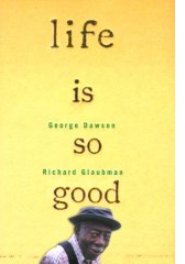 Film: The Primary Instinct
Film: The Primary Instinct
Director: David Chen
“If the realm of pure invention is what we call God, then the realm of reinvention is what we call man, and the marriage between the two is prayer.”
– Stephen Tobolowsky
At a pivotal point in his stage monologue career a small boy in the audience asked Stephen Tobolowsky why he tells stories. This film is, in part, an attempt to answer that question, resulting in a broad but colourful spectrum of answers. We tell stories, according to Tobolowsky, to see ourselves. A science enthusiast, he points out that eyes haven’t evolved much, and most creatures, notably human ones, need stories to be able to see themselves.
Another of his theories about the purpose of stories is that, like deeply rooted ice cores found in the Greenland and South Pole, stories plumb the depths of our realities and bring up valuable information about the things that matter to us.
Does this sound a little like the guys on The Big Bang Theory? Yes, there are times during this monologue when you feel like you’re on a long school trip, stuck on a bus beside the nerdy guy who can’t shut up. You want to gossip about the popular kids while he talks about how things work until it makes your brain hurt.
But there’s nothing painful about this. Hopefully you’ve had the pleasure of watching an engaging stage monologue and been surprised at how easily you could be mesmerised by someone who just keeps on talking. Being captivated by Stephen Tobolowsky is even more of a surprise; a character actor who’s played supporting roles in more Hollywood blockbusters than you can shake a clapstick at, he’s not what you’d call a star, and his face is about as nondescript as a rice cake. The private details of his life are of no great concern to the gossipmongers. But it’s their loss, because the details?and his personal interpretations of them?are a source of wonder and delight.
To reiterate, Tobolowsky clearly didn’t enter acting because he was too gorgeous to stay hidden. Acting was a real calling for him, not a ticket to a world of glamour and naughtiness (although he’s had his share of that), so his take on Hollywood Babylon is refreshingly honest and insightful.
Tobolowsky mostly paces back and forth on stage while talking animatedly to an audience, but at the start and end of the film he’s talking before the camera about what it’s like to be a supporting character actor in Hollywood. There’s a hierarchy of importance to the roles, he says, which can be discerned from the dramatis personae. The less important your role, the more anonymous you become; first you lose the last name, then the first name, then you’re simply an occupation (e.g. “plumber”), and then a laughingstock (e.g. “buttcrack plumber”).
Tobolosky’s characters somehow ended up near or at the bottoms of most of these lists, but what he lacked in quality of opportunity he gained in quantity. He always managed to keep working, even after a near-fatal accident with a horse. Near an active volcano. In Iceleand. And when he wasn’t working he was telling stories. Now he works by telling stories.
His stories don’t tie up easily. They end with epiphany, not resolution. The spiritual character of the film doesn’t end there; he eventually touches on the issue of sacredness in everyday life, pointing out that Biblical Hebrew has no tenses, and that the kadosh are the things holy and “set apart.” Things kadosh aren’t connected to the flow of time?they transcend it.
“How does a moment get cut off from time?” Tobolowsky asks. “The easiest answer that I have is ’surprise.’ Maybe the holy always works by ambush.”
Another question the film poses is this: What is the primary instinct? His mother, whom he calls a kind of Delphic Oracle, always taught him that self-preservation was the primary instinct. This made sense to him, but later in life he felt compelled to expand on her dictum by expressing what it is that preserves us:
“The secular is important,” Tobolowsky says. “It’s where we live every day. It’s the sacred that sustains us.”
The Primary Instinct manifests seven of The Mindful Bard’s criteria for films well worth seeing.
– It’s authentic, original, and delightful.
– It poses and admirably responds to questions that have a direct bearing on my view of existence.
– It provides respite from a sick world, a respite enabling me to renew myself for a return to mindful artistic endeavor.
– It’s about attainment of the true self.
– It inspires an awareness of the sanctity of creation.
– It encourages empathy, enabling me to respond with compassion and efficacy to the suffering around me
– It makes me appreciate that life is a complex and rare phenomena, making living a unique opportunity.
Many thanks for the research assistance of Bill Waterman.
Wanda also writes the blog The Mindful Bard:The Care and Feeding of the Creative Self.


